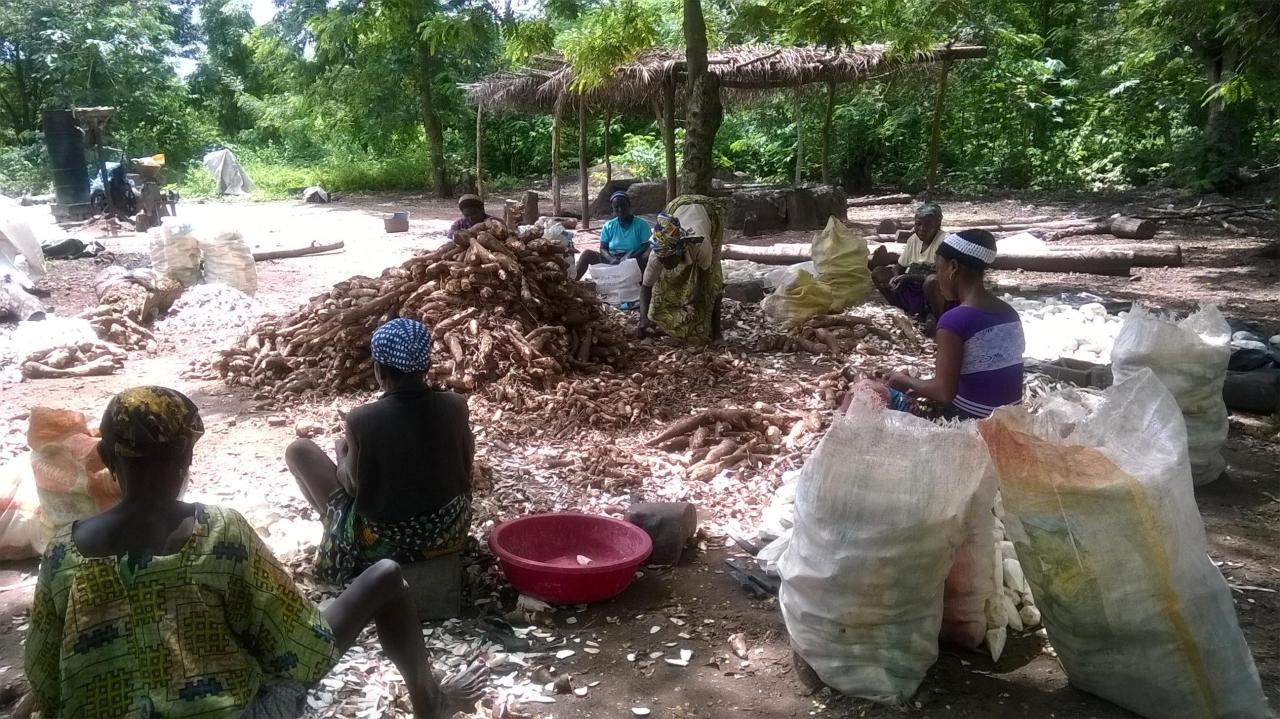The number of people living in poverty (on less than $1.90 per day (2011 PPP)) in Nigeria has risen significantly from an estimated 44.5 million in 1985, to approximately 82.5 million in 2009. Cassava farming is one of the agricultural markets that covers the largest numbers of the poor generally in northern and southern Nigeria.
Cassava (Manihot esculenta), is a perennial woody shrub with an edible root, which grows in tropical and subtropical areas of the world and is the basis of many products, including food. Nigeria is the largest producer of cassava tubers in the world with production of about 45 million metric tons (about 19%) of the world‘s production of 242 million metric tons in 2009. Between 2003 and 2008, the average annual production in the country was about 35 million metric tons and the total area under cassava cultivation in Nigeria is about 3.60 million hectares with an average yield of 11.7 t ha–1.

Given the contex above, the Business Innovation Facility (BIF) programme chose to intervene in the cassava market. BIF aimed at developing new market systems approaches – working in partnership with business and other market participants – that ultimately lead to improvements in the livelihoods and well-being of poor people, whilst improving bottom lines for commercial organizations. The Convention on Business Integrity (CBi) was the implementing partner for the Business Innovation Facility (BIF) project in Nigeria, working in collaboration with the PriceWaterhouseCoopers, London. BIF was funded by the UK Department for International Development (DFID) and lies at the heart of the UK Government’s commitment to building stronger partnerships with business.
W-Holistic Business Solutions responded to a Request for Proposal from BIF to develop a Cassava Out-Grower Business Model/Toolkit that will be piloted with selected BIF partners and subsequently rolled-out to others.
W-HBS developed a Cassava Out-grower Business Model/ Toolkit (to meet both commercial and development objectives) that incorporates an evidence-based approach to the establishment and scale-up of out-grower schemes to deliver effective and mutually beneficial long-term partnership arrangements between the smallholder farmers and industrial primary processors within the cassava value chain.
To achieve this W-HBS:
W-HBS is proud to have worked on shaping part of the cassava value chain in Nigeria. Below are the results of our work:
W-HBS demonstrated knowledge, competence and delivered actual results for this project. They designed a Cassava Out-Grower Business Model/Toolkit using practical methodology and insightful data gathered from various stakeholders in the cassava value chain during nationwide field visits they conducted.
The quality of their work was evident during the peer review, validation workshop and the successful implementation of the Business Model/Toolkit by an industrial processor as a pilot.
The Business Model/Toolkit is still a reference for many organisations looking to set up Out-Grower Schemes in Nigeria.
Even after a project ends, W-HBS continues to follow up on its clients and the progress of the projects through our M&E unit. Below are the latest updates of the BIF project: